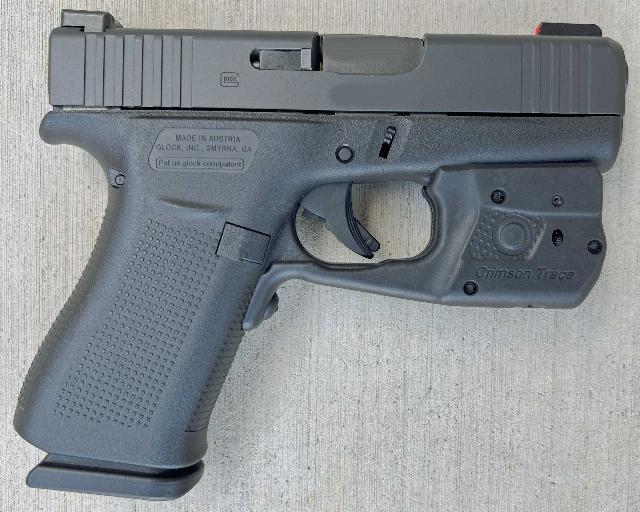Deadly force and common misconceptions
Recently, a reader responded to Stand your ground in jeopardy in California by suggesting if one was forced to use deadly force to defend themselves in their home, they should drag the attacker to the curb. Several other readers thankfully noted it’s foolish to tamper with evidence which is quite correct. That observation, however, is not the only reason one should never do that.
Keep in mind I’m not a lawyer, I’m providing general knowledge, and wherever you live you’re responsible for knowing the law particularly the law of self-defense. That said, the general principles of the use of deadly force are universal. It’s the legal elements around the fringes, particularly in blue states, that can be damaging.
One may lawfully use deadly force in circumstances such that a reasonable person would believe they are facing an imminent threat of seriously bodily injury or death to self or another. Castle doctrine laws, currently in at least 27 states, provide additional criminal and civil protections for people lawfully using deadly force. Those laws, as well as Stand Your Ground laws, were the topic of the aforementioned article.
It should go without saying that avoiding physical conflict of any kind is essential but not always possible, particularly when one is attacked in one’s home in the middle of the night.

Graphic: Glock 43X, Author
So. You’ve survived a deadly force encounter. The attacker has stopped bleeding out in your living room because his heart has stilled. What’s next?
Do not touch or move them or their weapon(s). Change nothing; touch nothing. If the police think for a moment you’ve messed with potential evidence, you automatically become the bad guy and they’re going to treat you that way. If you lawfully applied self-defense, you should, eventually, be exonerated.
Call 911 but first take a deep breath and think about what you’re going to say. Understand everything you say to a police dispatcher will be recorded, and everything you say and do around a police officer will be filmed. Tell the dispatcher only that someone broke into your house, they’re down and you need the police and an ambulance. The dispatcher will try to get as much information out of you as possible. Say the absolute minimum.
As the police are on their way, call the self-defense attorney like U.S. Law Shield you have in your smart phone’s “contacts” file. Listen to that attorney and take their advice. If you carry a handgun, you absolutely need their services.
When the police arrive, say as little as possible. Stick to the bare bones facts and tell them you’ll cooperate fully as soon as you’ve had the opportunity to confer with your lawyer. Keep in mind the police don’t know you. Everyone lies to them, and they’ll assume you will too. Until they can prove otherwise, they’re going to treat every unattended death as murder, so it would be a very good idea for your hands to be empty and visible and for you to be as non-threatening as possible when they arrive.
The police will try to get you to blurt out incriminating statements as people under stress usually do. Don’t do it.
They will want to take your gun. Let them. Do not argue with them—at all. The time for argument is later in court if necessary.
They will likely arrest you. This is particularly likely if you live in a blue state. Do not resist. You’re the victim. You were forced to do something no sane person ever wants to do. Do nothing to convince the police otherwise. Remember: you’re being recorded and everything you say and do will be used against you.
Even if you live in a red state, the police may arrest you as a matter of procedure. They may think arrest them all and let the detectives sort it out later.
Pretty much everywhere, Joe Average Citizen will have no idea how local prosecutors feel about self-defense, though if they live in blue states they can be reasonably certain they’ll be prosecuted. Again, listen to your attorney and say as little as possible.
Absolutely never say “I killed him,” or anything like it. If you have to shoot someone about to seriously harm or kill you or another, the most you should say is “I had to stop him.” It’s not a matter of picky semantics, but a very real distinction that could save your liberty or life. You shoot to stop them from doing whatever it was that gave you the legal justification to shoot, not to kill. If they died in the process, that’s on them.
Again, I’m not an attorney. That’s why you have a self-defense specialist in your “contacts” file. Know the law where you live, and do everything you reasonably can to avoid any physical conflict.
On a different subject, if you are not already a subscriber, you may not know that we’ve implemented something new: A weekly newsletter with unique content from our editors for subscribers only. These essays alone are worth the cost of the subscription.
Mike McDaniel is a USAF veteran, classically trained musician, Japanese and European fencer, life-long athlete, firearm instructor, retired police officer and high school and college English teacher. He is a published author and blogger. His home blog is Stately McDaniel Manor.